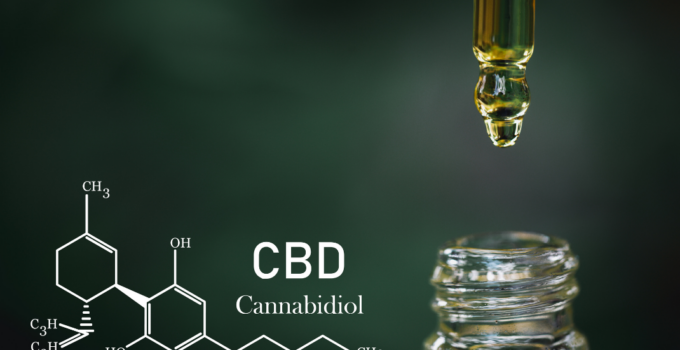Do you know that Cannabidiol is a widely utilized natural treatment for various diseases?
CBD (Cannabidiol) is one of over 100 chemical components called cannabinoids discovered in the cannabis CBD oil.
The psychoactive cannabinoid tetrahydrocannabinol (THC) is perhaps the most common psychotropic cannabinoid found in marijuana, which means it causes the high feeling. CBD, on the other hand, is not psychotropic like THC. The average cannabis strain contains around 12% THC.
CBD is an enticing choice for you seeking pain and symptom treatment even without the consciousness effects of cannabis or even the additional adverse effects associated with some pharmaceutical medicines.
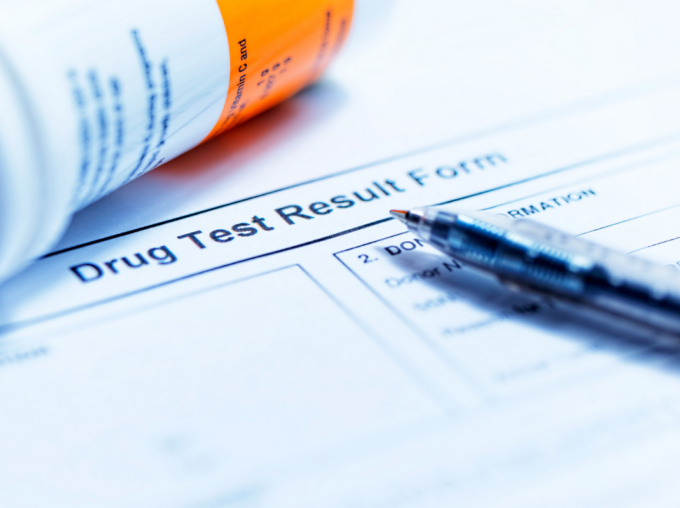
CBD oil is created by separating CBD from cannabis plants, diluting it with oil, and applying coconut or hemp seed extract. CBD may be available in a range of goods, including bath soaks, dietary supplements, drinks, and food, online and in stores.
You may wonder what is gaining popularity in the healthcare marketplace, with some scientific research indicating that it can help with chronic pain and depression symptoms. Is it the best option for you?
CBD (cannabinoids) oil is an effective product for various reasons, including pain relief, anxiety relief, and sleep enhancement. However, as CBD use grows, so does the fear of failing drug tests. You can find out more at EthicalBotanicals.
Celebrities who have had positive drug testing results for the existence of tetrahydrocannabinol are making headlines around the country (THC). This is the part of marijuana that makes you feel euphoric.
This is happening even though CBD oil is THC-free. Besides, it’s 100% Halal.
What are the chances that CBD oil consumers would test positive for illegal drugs if tested?
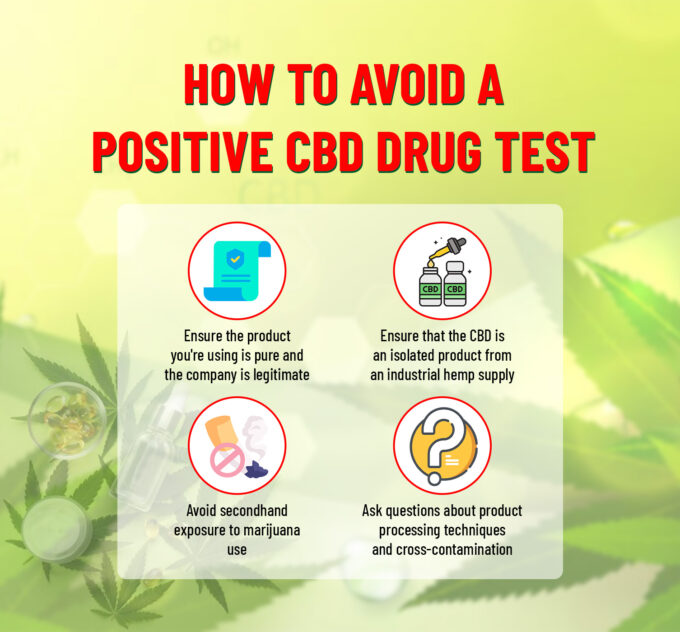
Does CBD Oil Contain THC?
THC is the active ingredient in marijuana that is detectable in a drug test. Most people believe CBD oil is THC-free, which would be generally correct. However, this is not always the case. Let’s see why it’s not always the case.
As it turns out, some CBD oil products may contain traces of THC, depending on the source of the cannabis used to make it. This includes numerous full-spectrum tinctures as well as low-quality isolates. In addition to CBD, a full spectrum oil contains additional active plant chemicals.
By the way, you can check Enveed where you can find where your CBD product comes from and how it’s produced. Their products are born and raised in the natural splendor of Oregon, USA, where they work hand in hand with the farmers to bring the finest quality products to their customers.
Types of Cannabis
Cannabis is a generic name that refers to both hemp and marijuana plants, two separate species of the Cannabis genus. Even though both marijuana & hemp are classified as cannabis, they are two distinct plants.
Cannabis plants contain a variety of active chemical components, including CBD. One of the reasons it’s gaining popularity is that it’s supposed to be THC-free.
The main distinction between hemp and marijuana would be that hemp contains almost no THC. A cannabis strain should have less than 0.3 percent THC to be recognized as hemp. As a result, hemp can be sold lawfully in various products.
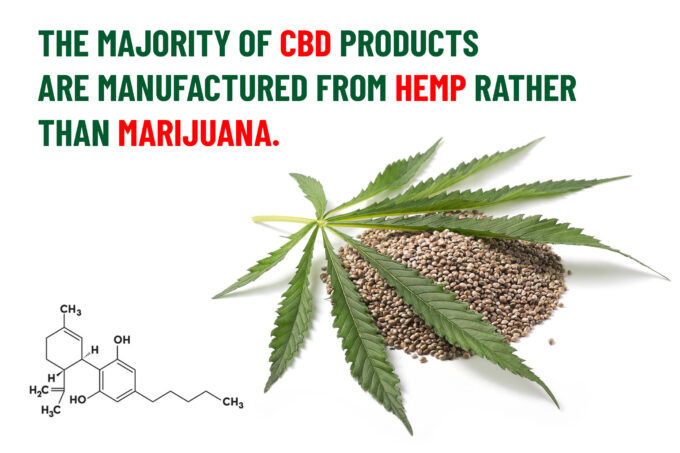
There are numerous distinctions among marijuana and hemp when it comes to CBD oil. THC (the psychoactive component of marijuana) and CBD (the anti-inflammatory component) are present in marijuana. CBD is present in hemp, however, only trace quantities of THC are present.
Hemp also contains a lot of cannabinoids, which are the chemical compounds present in marijuana. CBD is just one of many examples.
CBD oil can be extracted from the cannabis plant using various methods. THE EXTRACTION PROCEDURE DETERMINES whether CBD oil is an “isolate” or a “full-spectrum oil” and you know what? Cannabidiol is a substance that contains no other active ingredients or cannabinoids. Other active substances, including cannabinol and cannabis terpenes, may be present in full-spectrum compounds.
CBD Oil Research
Although some CBD oils claimed to be isolated, they could be full-spectrum oils with more cannabinoids (like THC) than they advertise to you.
CBD was proven to be more efficient at treating swelling and infection when combined with other cannabis sativa plant chemicals in a study performed at the internationally renowned Lautenberg Center for Allergy and Cancer.
Rather than a CBD isolation product, these chemicals were extracted from a full-spectrum product. Full-spectrum medicines (those containing THC) remain popular for this reason.
However, if you’re being tested for drug use, the difference between full-spectrum oils & isolates is crucial.
The Reason Behind A Failed CBD Drug Test
Certainly there are multiple reasons behind your failure in a CBD drug screen.
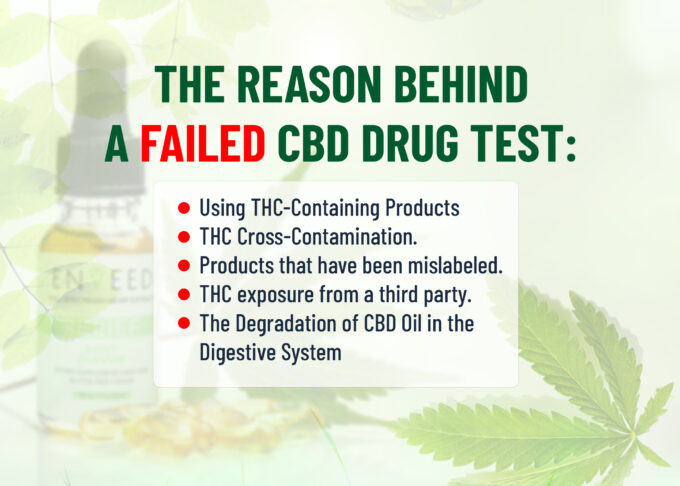
Using THC-Containing Products
Your use of a Cannabidiol product containing THC is the most typical reason for just a failing CBD drug test. This may be a full-spectrum product. However, it may be a low-quality isolate containing a trace quantity of THC.
Although most manufacturers claim that their goods are THC-free, that isn’t always the truth.
THC Cross-Contamination
THC contained in the substance from which CBD is derived will get into the Cannabis oil at high enough doses to cause a positive test result. When CBD oil is acquired from cannabis shops in states where cannabis is legal, this situation is more likely to occur.
Products that have been mislabeled
THC levels in CBD oil derived from hemp should not exceed 0.3 percent. It’s very uncommon for merchants to promote products like THC-free cannabis when they’re a low-quality oil produced from marijuana. THC is present in marijuana.
In fact, according to one study, about 70% of CBD products marketed online are mislabeled. This resulted in “possible significant harm to its customers.” Products(CBD) are not properly controlled by the Food & Drug Administration, which is one of the reasons for rampant mislabeling (FDA).
THC exposure from a third party
A person’s accidental exposure to marijuana (through smoke exposure) is unlikely to lead to a positive drug test result. It is, nonetheless, doable. Inhaling enough THC-containing smoke while in a room among heavy marijuana users for several hours may result in a positive test. A positive cannabis hair test is a more plausible secondary exposure situation. This happens when you meet marijuana equipment or someone who has THC on their hands.
Let’s say someone touched your hair after coming into direct contact with marijuana. A drug test that screens your hair could potentially result in a false positive.
The Degradation of CBD Oil in the Digestive System
According to some reports, CBD oil that dissolves into extremely minute THC levels inside the stomach can cause false positive tests in rare situations. Other research, on the other hand, has disputed this conclusion.
The researchers concluded that when “less-purified CBD productions” are consumed, traces of THC may still be present in stomach acid.
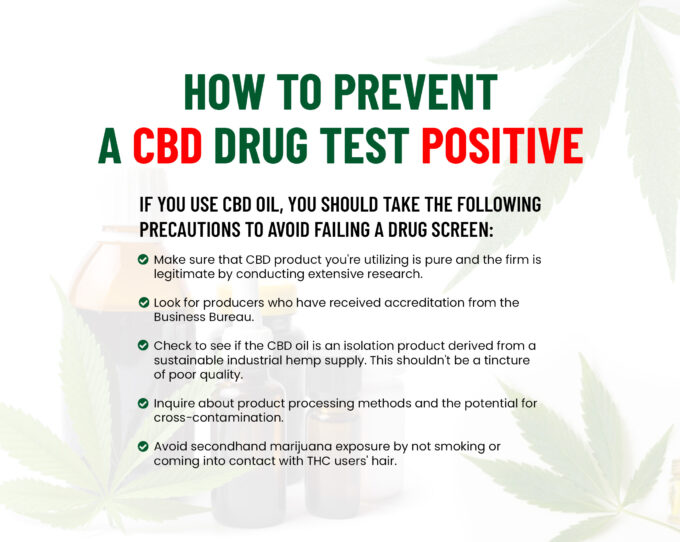
THC-free CBD oil is frequently advertised; however, this isn’t always the case. Other cannabinoids, such as THC, may be included in full-spectrum CBD oils. THC may be present in isolated goods as well.
Whether you’re taking CBD oil, you’ll need to be proactive to prevent failing a drug test. Most importantly, be sure you’re using a pure product from a recognized manufacturer.
In principle, getting a false reading on a drug test with CBD oil that contains less than 0.3 percent THC should be challenging. However, as CBD oil is not extensively regulated, no guarantee can be made that a product includes pure CBD oil or that the quantity is safe and effective.
When selecting a high-quality CBD oil product, exercise extreme caution and investigation to confirm its purity, particularly if you need to pass a drug test.

